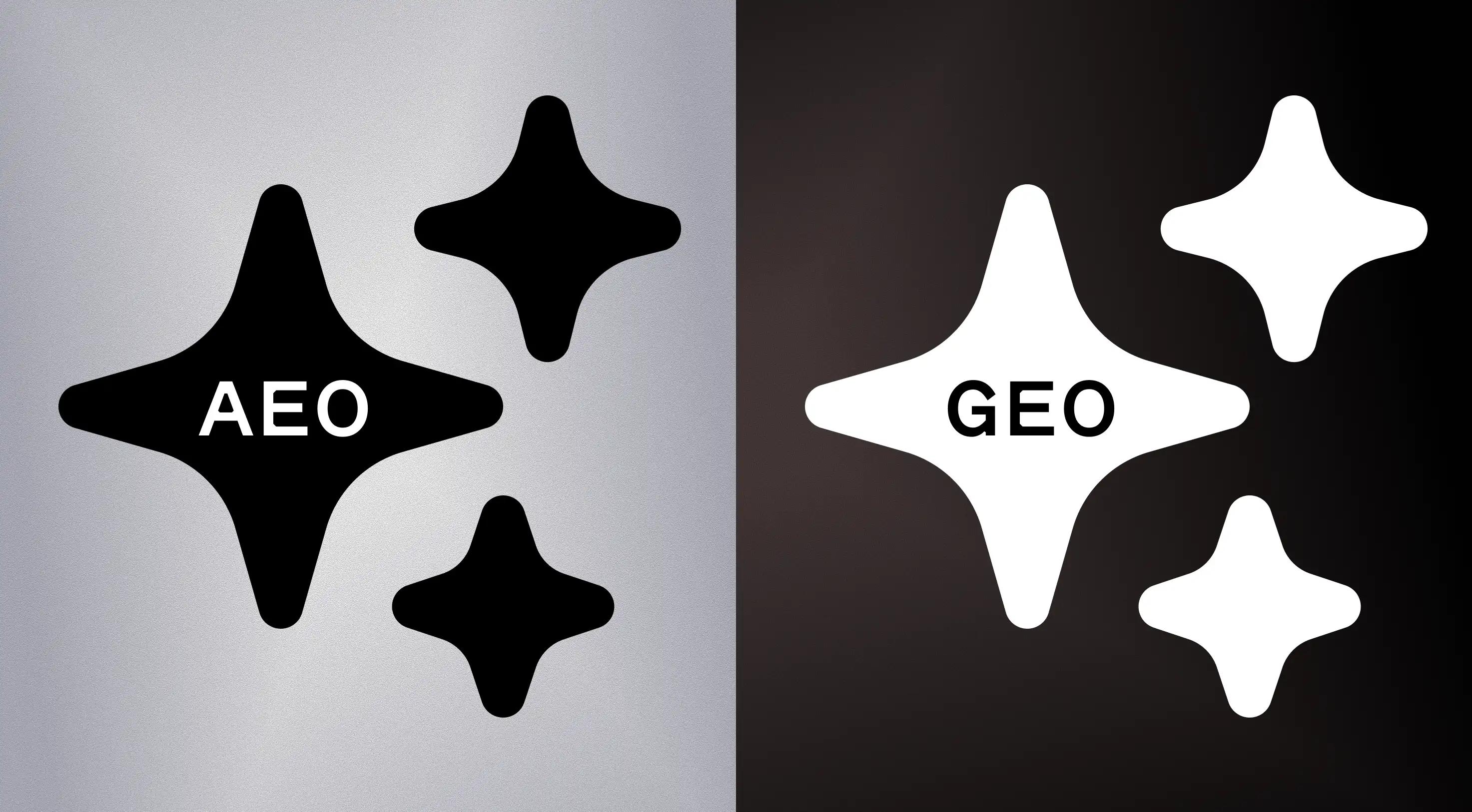What is the difference between AEO and GEO?

Last updated: 9/12/2025
If you are active in the digital marketing world, you have likely heard two new terms floating around: “Answer Engine Optimization (AEO)” and "Generative Engine Optimization (GEO)”.
Don’t feel bad if these new terms have left you with a few questions. The knowledge of AEO, GEO, and the best practices for both is still evolving, but it can still be important to understand how these practices can potentially be used to grow your business.
To clear up the confusion, let’s answer:
- What do they mean?
- Are they different?
- How can they help your business?
What is Answer Engine Optimization?
Answer engine optimization can essentially be viewed as the practice of creating and structuring content to directly answer your audience's questions.
Most brands lack enough online content to address their target audience’s biggest questions. This means that when people turn to AI answer engines with these questions, there is no reliable information for the AE's to use to provide a direct answer.
AEO is the strategy of creating new content and optimizing existing content to provide answer engines with accurate information to for concise, zero click answers to user questions. For more information on AEO, check out this full article on the topic.
What is Generative Engine Optimization?
Some user questions can't be answered in a concise snippet. That is where generative engine optimization comes in.
The goal of GEO is to optimize the content of a website to make it an accessible and reliable source for tools like ChatGPT and Gemini to reference when generating contextual answers to queries. GEO has its own set of best practices for optimizing both content and technical specifications for answer engines. For more information on GEO, check out our overview here.
Are they different?
It's complicated. Some draw a clear distinction between them, but you might sometimes hear the terms used interchangeably. The understanding of both AEO and GEO are constantly evolving, so it's hard to say which way of viewing them is correct. However, if you are trying to incorporate AI optimization into your marketing strategy, it can be important to have a clear way of thinking about them independently. Here is how we are currently doing so:
- AEO enhances AI visibility by providing concise answers to simple questions
- GEO enhances AI visibility by giving answer engines context for generating answers
As the practice of AI optimization continues to develop, AEO and GEO could become even more different, or they could merge completely. What's important now is ensuring that your business is proving AI search tools with answers to simple questions as well as context and trust signals.
How can AEO and GEO help your business?
When performed in unison, AEO and GEO can bring a number of benefits to your business.
Increased AI visibility
A well-executed AEO/GEO approach could potentially increase your visibility in answer engine results. Depending on your industry, answer engine visibility might cause a direct increase in inbound leads; however, not all industries have seen the same impact from AI search at this point. Regardless, with more and more search engines incorporating features like “AI summaries” into their search results, answer engine visibility will likely soon become a standard goal for marketing departments.
Improved sales methodology
One of the hidden benefits to diligently pursuing AEO/GEO is an improvement to your sales methodology. Many companies struggle to effectively communicate the value of their products or services during the sales process, focusing instead on mentioning key sales and marketing talking points that aren’t actually relevant to the customer’s problem. Taking the time to document answers to your customers’ biggest questions in a way that makes sense will help your sales team to empathize more with buyers during sales interactions.
SEO Benefit
Aside from AI visibility, because one of the core elements of an AEO/GEO strategy is adhering to best SEO practices, investing in an AI optimization strategy should also improve your ranking in conventional search results.
If you are still looking for more information about AI for marketing, check out the AI section of our FAQ page.

Looking for more marketing knowledge?
Check out more of our Digital Marketing Frequently Asked Questions, view our blog, or subscribe to Marketing Things You Should Know!